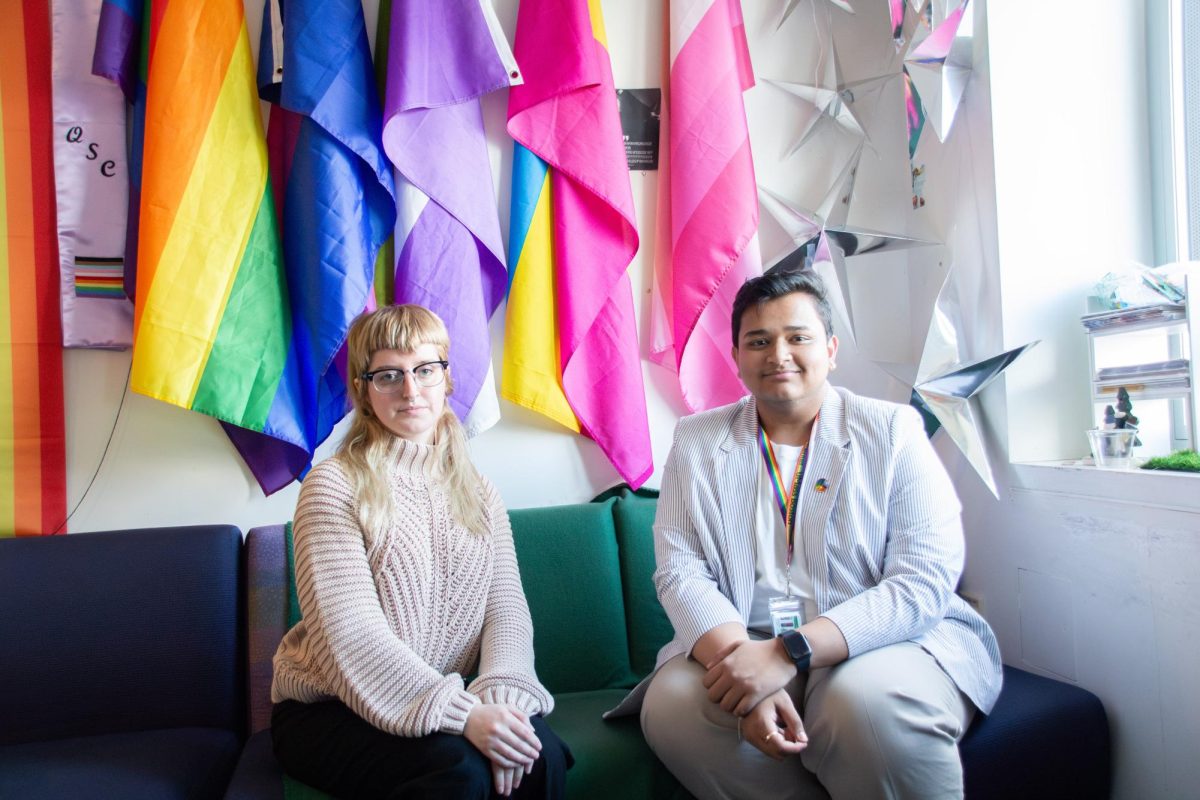While September has passed and the end of October draws near, the powerful impact of both months is still clear to those in the LGBTQ+ community.
The month of October, hailed as LGBT History Month, harbors a special day. On Oct. 11, the LGBTQ+ community celebrated National Coming Out Day, a celebration of queer identities and especially individuals who live life as their true selves after coming out. Preceding this special day, though not as well-celebrated by all in the community, September also marks the celebration of a significant week for one particular group—including myself.
Known as Bisexual Awareness Week, the week of Sept. 16 through Sept. 23 seems like a measure of how far I’ve gotten since first accepting my sexuality in 2021.
As a bisexual woman who has only recently acknowledged and accepted her sexual identity in the past two years, I’ve always struggled with societal beliefs about sexuality and harrowing expectations from my Asian immigrant parents, unable to discover more about my identity within the confines of the box I was placed in. Heterosexuality was a given to my parents, and flaunted so much in every other corner of my life that it was a crime to not like boys.
In every TV show and chick flick I saw set in high school, it was always the new girl eventually getting together with the conventionally attractive boyfriend of the popular girl. In the children’s cartoons and old-school anime I watched, no matter how young the protagonist was, there would be a love interest—always of the opposite gender—pushed not too subtly to set up the grounds for a future relationship.
It was the perfect formula for success: I should be attracted to boys.
This promotion of heteronormativity, even in media targeted toward children, was more than damaging to a growing girl still learning about herself. Though I paid more attention to the women in the shows and movies that I’d watch than the men, singing their praises and admiring their beauty, I had thought it was only natural to be so drawn to the actresses and female characters because women were just very beautiful in general. I didn’t even dare to entertain the thought that I could be attracted to women.
It was in high school that the idea loomed over my head, unrelenting and always there. It lingered with every beat that my heart skipped when I was next to some of my female friends, leaving me with more questions than answers.
Then, after a year of isolation and returning to in-person schooling during my junior year, the answer came out of me so easily when discussing sexualities with my new friends.
“I’m bi.”
It was the first time I had said it out loud.
When did the admission that I liked girls start leaving my heart light, instead of fearful of the consequences? It was something even I couldn’t tell, a gradual acceptance of an important aspect of my identity that I chose to welcome, rather than surrendering to my fears.
Over these last two years, I have come out to all of my friends as bisexual and openly advertised it on social media. I don’t shy away from my identity, and my boyfriend is a supportive ally who doesn’t minimize or devalue my experiences as a queer person. Yet, there is still always an underlying imposter syndrome that I feel as a member of the LGBTQ+ community, amplified only by the vicious stigma and stereotypes associated with bisexuality and bi-erasure in society.
There is often the stereotype that bisexual people are more promiscuous and unfaithful, having “more opportunities to cheat” due to their attraction to both genders and being thought of as unable to commit to a monogamous lifestyle, as explained by Global News. [1]
Bisexuality is also heavily invalidated both inside and outside of the queer community, with bisexual people commonly being told that they’re not truly bisexual if they have a preference for one gender or that they’re just confused about their real sexuality. For those with partners, they face additional bi-erasure in the form of assumptions about their sexuality; they’re automatically labeled as “gay” or “straight” depending on the gender of their partner, with “bisexual” being a second thought, as explained by Global News. [1]
As a result of this stigma, bisexual people are twice as likely to not come out compared to lesbian and gay members in the community. According to Stonewall, only 36 percent of bisexuals come out about their sexual identity with friends, as compared to 74 percent of their gay and lesbian counterparts. [2]
The stigmatization and the bi-erasure that we face on a daily basis have contributed to this imposter syndrome that I have felt since coming out as bisexual. Having never had a relationship with a girl and having a boyfriend, it can sometimes feel like my bisexuality is in question and that I cannot consider myself queer, despite knowing that my attraction to women does exist on an equal level to my attraction to men.
Where I once struggled with accepting my identity, now I struggle with feeling like an imposter in my own identity.
However, I know that my bisexuality does not depend on anyone or anything else. It is something that is entirely mine that can’t be swayed by the opinions of others. Though I can’t easily eliminate the doubts about my identity, it is all just another step in my journey to coming to terms with my bisexuality.
We are the B in LGBTQ+, and nothing can erase that.
While I didn’t celebrate that very first year or last year, I made sure that, this September and October, I could tell the me from just a few years ago this:
“Happy Bisexual Awareness Week, and Happy Coming Out Day. I’m so proud of you.”
Sources
[1] https://globalnews.ca/news/8921492/bisexual-stereotypes-stigma-inside-pride/
[2] https://www.stonewall.org.uk/system/files/lgbt_in_britain_bi.pdf





















































